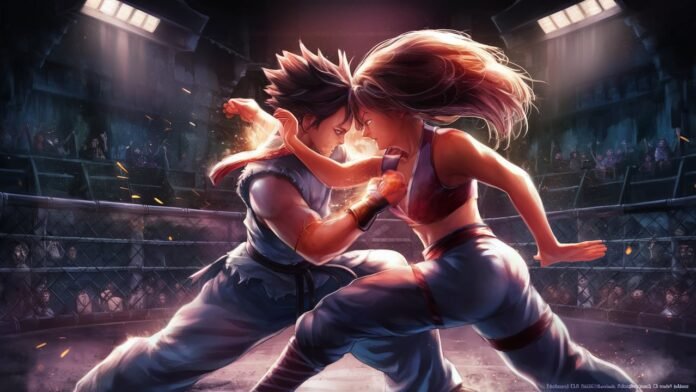Introduction
Doujindesu is a term closely associated with the world of doujinshi, a unique and thriving part of Japanese manga and anime culture. Doujinshi refers to self-published works, often created by independent artists or groups, covering a wide range of genres, including original stories and fan-made adaptations of popular anime, manga, and games. The term Doujindesu itself seems to reference platforms or communities that distribute and discuss doujinshi content. With the rise of digital platforms and online communities, the accessibility and popularity of doujinshi have skyrocketed, allowing fans worldwide to explore this fascinating subculture. In this article, we will explore the significance of doujinshi, its influence on mainstream media, its legal and ethical aspects, and the reasons behind its growing appeal.
1. The Origins and Evolution of Doujinshi Culture
Doujinshi has a long history in Japan, dating back to the late 19th and early 20th centuries. Initially, it was a form of self-expression for amateur writers and artists who wanted to publish their work outside the constraints of mainstream publishing companies. However, the modern concept of doujinshi took shape in the 1970s and 1980s with the rise of fan communities and events like Comiket (Comic Market), which provided a platform for artists to showcase and sell their creations. Over time, doujinshi evolved from simple fan adaptations to complex, original works that sometimes rival professionally published manga. The internet revolutionized this culture by making doujinshi more accessible, leading to the rise of online platforms like Doujindesu, where fans can discover and enjoy countless works from independent artists.
2. The Appeal of Doujinshi: Why Fans Love It
One of the biggest reasons for the popularity of doujinshi is its creative freedom. Unlike mainstream manga, which often follows industry trends and editorial restrictions, doujinshi allows artists to explore unique and unconventional themes without limitations. Fans are drawn to doujinshi because they offer alternative storylines, deeper character developments, and even crossovers between their favorite series. Many doujinshi works provide fresh perspectives on well-known characters, sometimes delving into relationships or scenarios that official publications would never explore. Additionally, the personal connection between creators and their audience makes doujinshi a more intimate and engaging experience, fostering a sense of community among fans and artists.
3. The Role of Doujindesu and Similar Platforms
With the increasing demand for doujinshi content, platforms like Doujindesu have emerged to make these works more accessible to a global audience. These platforms serve as digital libraries where fans can browse, read, and sometimes purchase doujinshi from various genres. Unlike traditional bookstores, which may have limited selections of doujinshi, online platforms allow for instant access to thousands of titles. Additionally, they provide a space for artists to gain exposure, receive feedback, and connect with a broader audience beyond Japan. However, these platforms also face challenges, such as copyright issues and ethical concerns, which have sparked debates within the doujinshi community.
4. Legal and Ethical Concerns Surrounding Doujinshi
Despite its widespread popularity, doujinshi exists in a gray area of copyright law. Many doujinshi works are based on copyrighted characters and stories from mainstream manga, anime, and video games. While some publishers tolerate or even encourage doujinshi as a form of fan engagement, others have taken legal action against unauthorized adaptations. The ethical debate centers around whether fan creations should be considered a legitimate form of artistic expression or if they infringe on the intellectual property rights of original creators. Some artists navigate this issue by creating completely original doujinshi, while others rely on parody laws to justify their work. As doujinshi culture continues to grow, the discussion surrounding its legality and ethical implications remains an important topic in the anime and manga community.
5. The Future of Doujinshi in the Digital Age
With the rise of digital platforms and online distribution, the future of doujinshi looks promising. More artists are turning to digital publishing, which allows them to reach a global audience without the costs of physical printing. Crowdfunding platforms and social media have also empowered independent creators to sustain themselves financially while maintaining creative freedom. However, the challenge lies in balancing accessibility with legal and ethical considerations. The industry may see new regulations or licensing agreements that allow fan creators to legally distribute their works while compensating original copyright holders. Regardless of these challenges, doujinshi remains an essential part of otaku culture, and its evolution will continue to shape the future of independent manga and fan creations.
Conclusion
Doujinshi is more than just fan-made comics—it represents a passionate and creative subculture that thrives on artistic freedom and community engagement. Platforms like Doujindesu have played a significant role in expanding the reach of doujinshi, allowing fans worldwide to enjoy these unique works. While there are legal and ethical concerns surrounding doujinshi, its impact on the anime and manga industry is undeniable. As digital technology continues to shape how doujinshi is created and consumed, one thing is certain: the love for independent manga and fan creativity will only continue to grow.


